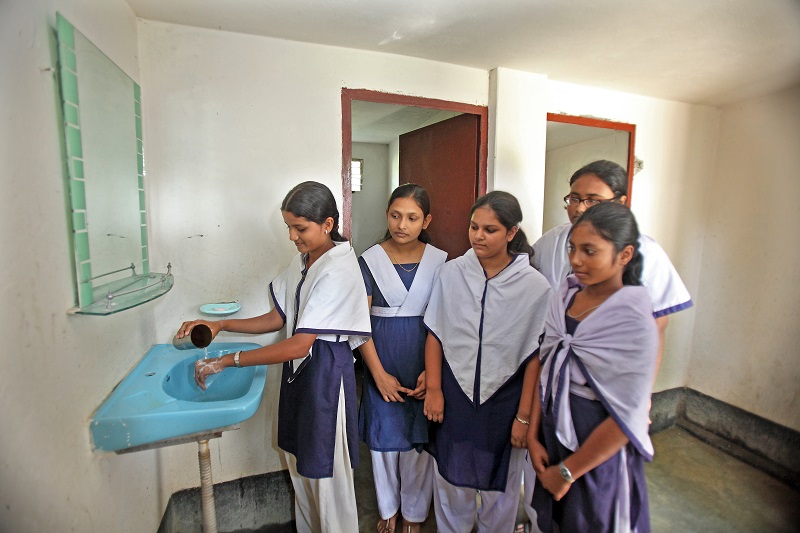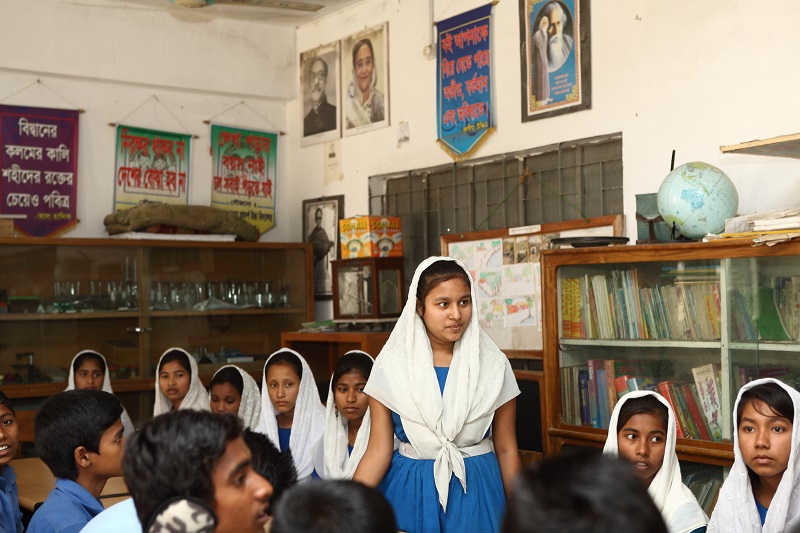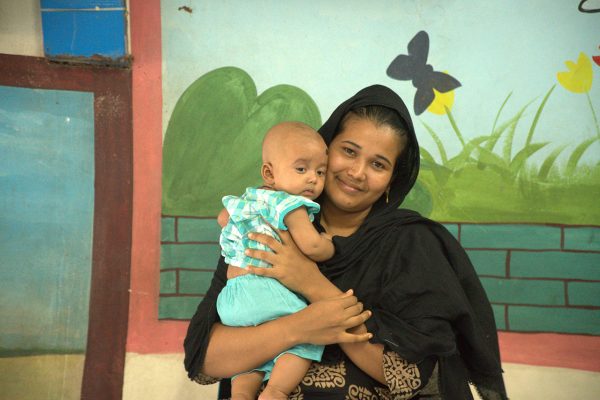That time of month: Why is menstruation still a problem?
Reading Time: 3 minutes
Menstruation is not just a monthly affair for many girls in Bangladesh. It is also an issue that hinders their education and their entire life. On Menstrual Hygiene Day, learn how we encouraged girls to stay in school throughout the year.
According to national statistics, a girl will miss three days of school each month. Many have said to have poor performance at school because of menstrual problems. Most girls use unhygienic old clothes or rags, since affordable menstrual wear is not easily accessible to them.
The stigma surrounding discussions on menstruation can have a severe impact on women’s educational development, health and overall economic status. Girls are often told to stay at home, and are forbidden to participate in any outdoor work or social activity during their period.
Inadequate facilities and information on menstrual hygiene management at schools further adds to the problem.
Nasma, a student of Class 6 from Rangunia, Chattogram, has faced many difficulties due to such issues.
“There were no toilets for girls in my school,” she said, “I would often skip meals during the day so that I would not have to use the toilet. I missed many school days during my period and I could not keep up with my lessons. I was convinced I had to leave school for good.”
Millions of girls like Nasma facing the same reality in their schools. This not only creates discomfort and fear of public embarrassment, but can also harm their long-term reproductive health of women. Studies have shown that poor menstrual management can cause a range of infections and reproductive diseases – some so severe that they affect maternal mortality.

More than half of the secondary schools in Bangladesh lack separate toilets for girls, and proper sanitation facilities in the premises.
Menstrual hygiene is a priority; a core element of BRAC’s interventions in water, sanitation and hygiene interventions. We have supported girls in over 5,600 secondary schools by providing menstrual facilities in girls’ toilets, and education on menstrual hygiene management.
We have created mass awareness in schools and communities about the importance of menstrual hygiene. We facilitated the establishment of WASH committees with school management, teachers, caretakers, parents and student representatives- who collaborate to ensure facilities for hygiene management in their institutions.
Student groups, known as student brigades, are formed by male and female students. These groups take responsibility in educating others about hygiene issues. Targeted cluster meetings for adolescent girls and parents also educate on proper management of menstrual hygiene.
The girls can now buy affordable sanitary napkins from their teachers. BRAC’s low cost, locally produced biodegradable sanitary napkins are supplied by our own health workers. Schools are also encouraged to store sanitary pads for emergencies, which the students can access anytime.
A female teacher of Hogolbunia Hatbati Secondary School in Khulna was pleased to witness the transformation in her school.
“It was rare to see a girl talking about menstruation before,” she says. “Girls are now confident and aware of hygiene issues and are willing to purchase sanitary pads.”

Students are provided with hygiene education though interactive sessions.
Over a million girls have received knowledge on menstrual hygiene, and proper facilities for maintenance through our interventions.
Monitoring studies show that absenteeism among girls reduced from 44% to 33% within six years (2006 to 2011), and majority of toilets provided by BRAC were found in good condition.
Presently, we are further expanding our WASH activities in schools by providing sanitation, drinking water and menstrual management facilities- particularly in the southern districts of Bangladesh where water crisis is more critical.
Nasma now leads her school’s student brigade, playing an active role in empowering other girls like her. There are plenty of other schools however that still need the support.
The dropout rate for girls in secondary school is over 40% in the country. More than half of the secondary schools in Bangladesh lack separate toilets for girls, and improved sanitation facilities in the premises.
Menstrual hygiene has to be prioritised to meet the SDG goals under gender equality. Inclusive development will not be possible if a need so basic as a natural biological function, stands as a financial and social burden for girls in the country.
Tasmia Nahreen Jahangir is a manager of knowledge management, innovation and fundraising of BRAC’s water, sanitation and hygiene programme.





